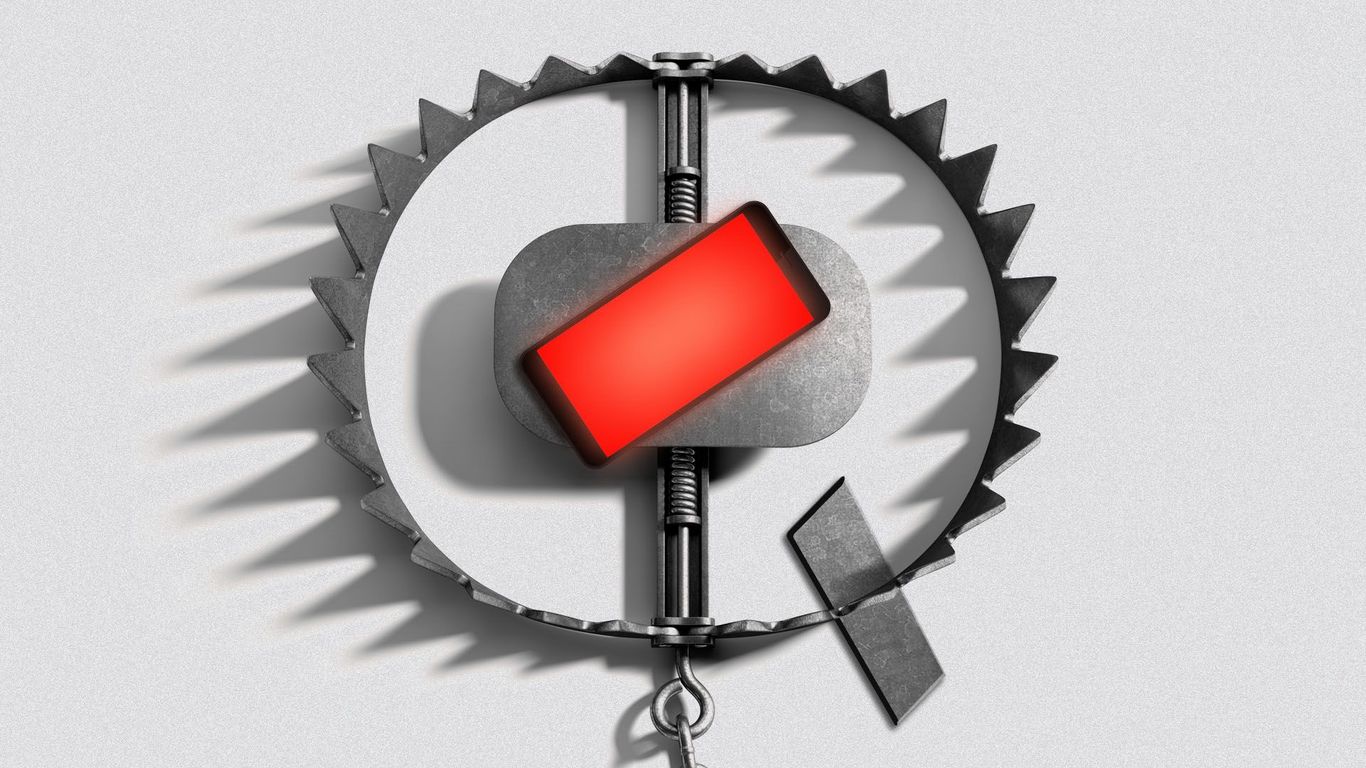QAnon conspiracy theory explodes ahead of the election

The QAnon conspiracy theory is growing — and being weaponized to boost President Trump ahead of the election.
Why it matters: What began as a single conspiracy theory linking Hillary Clinton to child trafficking four years ago is now part of a convoluted web of falsehoods being spread to undermine Joe Biden.
The big picture: In a year of unrest and expected election turmoil, experts are concerned that belief in QAnon could be another instigator of violence in some communities if Trump loses in November.
- “That’s the question that keeps me up at night,” said Bryce Webster-Jacobsen of the cyber threat intelligence firm GroupSense, which specializes in disinformation.
- Tracking these kind of local, potentially militant groups is difficult, he said, because recruitment is often both online — where most of the QAnon community lives — and offline.
By the numbers: New polling provided exclusively to Axios by HOPE not hate, a U.K.-based anti-extremism nonprofit, found more than a third of Americans saying that they believe it’s at least probably true that elites “are secretly engaging in large scale child trafficking and abuse.”
- 10% said they are at least “soft” supporters of QAnon, specifically.
- The QAnon theory is based on a sprawling online network that analyzes cryptic messages in remote online forums by an anonymous figure “Q,” who claims, without evidence, to be a Trump administration official with high-level clearance.
Driving the news: Recent reports about what was purported to be Hunter Biden’s computer hard drive have sparked renewed activity from Q, with more concrete ideas to latch onto.
The backstory: In 2016, the Pizzagate conspiracy theory claimed that elites and Hillary Clinton’s campaign manager were involved in a child sex trafficking ring being operated out of a popular pizza place. It was a niche conspiracy theory, but it led someone to show up to a pizzeria in Washington DC with guns.
Trump has winked at QAnon followers on multiple occasions — most notably with his refusal to condemn the conspiracy theory when asked directly.
- Earlier this year, Donald Trump Jr. jokingly insinuated that Biden was a pedophile, a nod to QAnon lore that many Democrats use their political power to hide widespread pedophilia.
- Some Republicans politicians’ adoption of aspects of the theory has helped bring it more mainstream, Webster-Jacobsen said.
What we’re watching: Nearly a dozen QAnon supporters are running for Congress. And of Republicans who know about QAnon, 41% said it is a somewhat or very good thing for the country, according to Pew Research Center.
What’s next: Tech companies are desperately trying to ban QAnon from their platforms before the conspiracy can spread any further.
- On Monday, Spotify removed QAnon podcasts and TikTok officially banned all QAnon content. YouTube and Peloton announced QAnon crackdowns last week.
- Facebook and Triller both banned QAnon earlier this month. Etsy banned QAnon products two weeks ago. And Twitter shut down QAnon accounts in July.
Yes, but: Despite these bans, QAnon followers still find other places online to congregate, like Parler, a far-right social media app.
Go deeper … Poll: One-third of Americans are open to QAnon conspiracy theories
*** This article has been archived for your research. The original version from Axios can be found here ***


